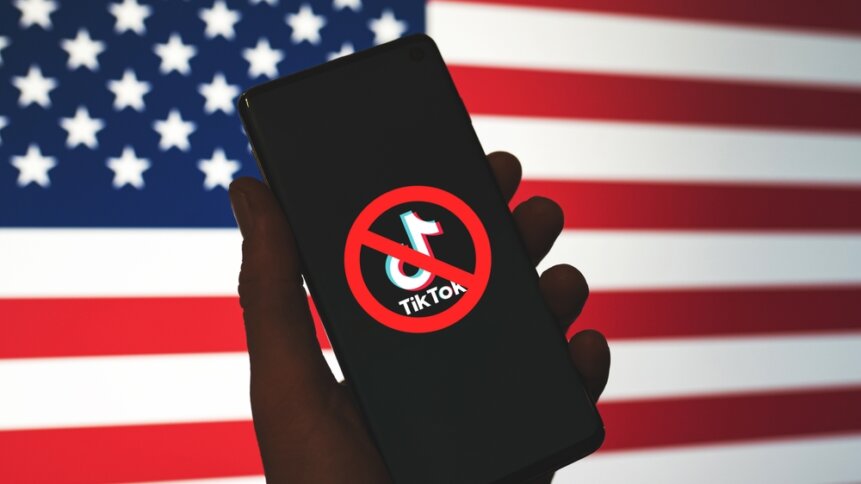RESTRICT Act will hurt more than TikTok

|
Getting your Trinity Audio player ready...
|
America’s potential TikTok ban has hardly left headlines since its CEO Shou Zi Chew was grilled in Congress amidst a bipartisan push to ban the app entirely in the US. The course of action that the government might take against the Chinese-owned app is outlined in the Restricting the Emergence of Security Threats that Risk Information and Communications Technology (RESTRICT) Act, led by Senators Mark Warner (D-VA) and John Thune (R-SD).
However, despite it being a reactionary legislation, it doesn’t specifically mention TikTok at all; its restrictions would be further-reaching. According to a White House Statement from National Security Advisor Jake Sullivan, “this legislation would provide the U.S. government with new mechanisms to mitigate the national security risks posed by high-risk technology businesses operating in the United States.”
America’s TikTok ban will impact more than the app
However, digital rights experts think that the RESTRICT Act could infringe on freedom to use a range of services beyond app usage. The language used in the Act is notably broad and could lead to other apps or communications services that have links to foreign companies being banned in the future. Although Americans’ freedom might seem of little interest abroad, losing the US as a market would have huge financial impact for any company.
Implicating and potentially criminalizing security tools like VPNs that are relied on for privacy puts American businesses at increased risk of cybersecurity attack. Further, international companies will be reluctant to involve themselves in the US because sharing data with at-risk companies would be too high-risk.
Further, think tank Coin Center has warned that if the bill becomes law it will threaten cryptocurrencies. Given that a key aspect of the cryptocurrency economy is its international trade, preventing US involvement threatens not only American investors but the whole market.
According to anti-establishment YouTube channel and podcast, Breaking Points, “the majority of Congress does not care about privacy […] to have them now saying that they’re so concerned about your data that they’re gonna ban TikTok just doesn’t pass the sniff test.” A lot of the criticism that the RESTRICT Act is being met with echoes critique of the 2001 PATRIOT Act.
It’s argued that the power granted to law enforcement under the PATRIOT Act was too far-reaching, something that would have been pointed out had the Act not been passed in an arguably-opportunistic rush following the September 11 attacks. Similarly, the TikTok debate is being used to catalyze broad-spanning legislation that doesn’t answer to the issue at hand.
“They don’t want to ban TikTok, they want to expand the surveillance powers of the federal government,” says Emily Jashinksy of Breaking Points.
The reason that there’s room for so much speculation on the negative impact of the RESTRICT Act is partly the vague language that it uses. For example, it lists “foreign adversaries” who will be affected by the Act as China, Cuba, Russia, North Korea and Venezuela. The last of these comes with the caveat of being “under the regime of Nicolás Maduro Moros.” As such, there’s already room for inclusion on the list to be subject to change.
Further, the legislation is said to cover “software designed or used primarily for connecting with and communicating via the internet that is in use by greater than 1,000,000 persons in the United States,” including “desktop applications”, “mobile applications”, “gaming applications”, “payment applications”, “web-based applications”. Not only is this incredibly far-reaching, it also makes it hard to know what wouldn’t be affected.
In Section 3a, subsection 2 the Act’s vagueness goes up a gear, citing anything that “otherwise poses an undue or unacceptable risk to the national security of the United States or the safety of United States persons.”
Ultimately, as a reflection of geopolitical tensions the RESTRICT Act appears to be concerned with America’s hostility towards China, as well as historical enemies like Russia. However, it’s making the whole tech world uneasy because of the precedent it might set. Whether the TikTok ban goes ahead or not, it marks a change in the way that governments will intervene in a nation’s internet usage from here on out.
Interestingly, even as lawmakers move forward with the RESTRICT Act, a rival to Instagram, Lemon8, owned by TikTok’s parent company ByteDance hit the US App Store’s top ten on Monday, coming in at No.10 overall app, across apps and games. Paid user acquisition aside, the trend suggests that, in spite of the doomsday theories, maybe the Act will have relatively little impact.








